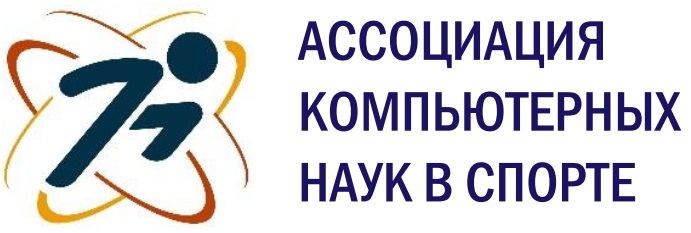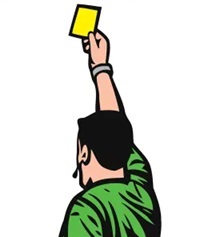Tehran, Iran
Budapest, Hungary
Shiraz, Iran
Budapest, Hungary
VAK Russia 5.4.4
VAK Russia 5.3.3
VAK Russia 2.3.1
VAK Russia 1.2.2
VAK Russia 3.1.33
UDC 004.04
UDC 311
UDC 796.332
UDC 316.6
UDC 616-036.22
CSCSTI 77.31
CSCSTI 77.05
CSCSTI 04.61
CSCSTI 04.15
CSCSTI 15.41
CSCSTI 27.43
CSCSTI 77.00
Russian Classification of Professions by Education 49.04.03
Russian Classification of Professions by Education 01.03.05
Russian Classification of Professions by Education 32.00.00
Russian Classification of Professions by Education 39.00.00
Russian Library and Bibliographic Classification 58
Russian Library and Bibliographic Classification 73
Russian Library and Bibliographic Classification 75
Russian Trade and Bibliographic Classification 5
Russian Trade and Bibliographic Classification 7
BISAC COM018000 Data Processing
BISAC SPO015000 Football
BISAC SPO041000 Sports Psychology
BISAC PSY031000 Social Psychology
BISAC PSY032000 Statistics
BISAC MAT029020 Probability & Statistics / Multivariate Analysis
BISAC COM077000 Mathematical & Statistical Software
BISAC MED028000 Epidemiology
BISAC MED084000 Sports Medicine
BISAC SPO066000 Sociology of Sports
This study aimed to prioritize the effects of COVID-19 and stadiums without spectators on the judgment of football referees, assistant football referees, futsal referees, and beach soccer referees in the Islamic Republic of Iran. Both qualitative and quantitative approaches were used to collect the data. The qualitative section involved interviews with 15 refereeing experts, while the quantitative section involved male and female football referees, futsal referees, and beach soccer referees in Iran (n=339). Following the interviews, a researcherdesigned questionnaire with 14 questions was electronically distributed among the referees. They were asked in general about the impact of the absence of spectators on their performance. To identify the factors and components affecting referees, factor analysis was conducted using SPSS software. Additionally, first- and second-order confirmatory factor analysis (SEM) was performed using LISREL software to validate the components. Finally, the identified factors were ranked using the Friedman test. It was found that stadiums without spectators benefited young and inexperienced referees, as they were able to judge matches more effectively. The closed doors format also resulted in less psychological pressure on referees, players, and coaches, since there were no spectators to protest mistakes or poor performance.
behind closed doors, decision-making, COVID-19, referees, spectators
1. Tamir I. There’s no sport without spectators - viewing football games without spectators during the COVID-19 pandemic. Frontiers in Psychology, 2022, 13, Article 860747. DOI: https://doi.org/10.3389/fpsyg.2022.860747
2. Glebova E., Zare F., Desbordes M., Geczi G. ’If there is no football, then we have nothing to discuss’: a phenomenological study on football fandom and COVID-19 pandemic. International Journal of Sport Management and Marketing, 2023, 23 (5), pp. 373-390. DOI: https://doi.org/10.1504/IJSMM.2023.133158
3. Parnell D., Widdop P., Bond A., Wilson R. COVID-19, networks and sport. Managing Sport and Leisure, 2020, 27 (1-2), pp. 78-84. DOI: https://doi.org/10.1080/23750472.2020.1750100
4. Webb T., Dicks M., Thelwell R., van der Kamp J., Rix-Lievre G. An analysis of soccer referee experiences in France and the Netherlands: abuse, conflict, and level of support. Sport Management Review, 2021, 23 (1), pp. 52-65. DOI: https://doi.org/10.1016/j.smr.2019.03.003
5. Glebova E., Zare F., Desbordes M., G´eczi G. COVID-19 sport transformation: new challenges and new opportunities. Physical Culture and Sport. Studies and Research, 2022, 95 (1), pp. 54-67. DOI: https://doi.org/10.2478/pcssr-2022-0011
6. Glebova E., Desbordes M. Identifying the role of digital technologies in sport spectators customer experiences through qualitative approach. Athens Journal of Sports, 2021, 8 (2), pp. 141-160. DOI: https://doi.org/10.30958/ajspo.8-2-3
7. Reade J.J., Singleton C. Demand for public events in the COVID-19 pandemic: a case study of European football. European Sport Management Quarterly, 2020, 21 (3), pp. 391-405. DOI: https://doi.org/10.1080/16184742.2020.1841261
8. Dantas F., Borges A., Silva R. Impact of UEFA Champions League and UEFA Europa League on financial sustainability - case study of two small football Portuguese teams. Sustainability, 2020, 12 (21), Article 9213. DOI: https://doi.org/10.3390/su12219213
9. Herold E., Boronczyk F., Breuer C. Professional clubs as platforms in multi-sided markets in times of COVID-19: the role of spectators and atmosphere in live football. Sustainability, 2021, 13 (4), Article 2312. DOI: https://doi.org/10.3390/su13042312
10. Boyko R.H., Boyko A.R., Boyko M.G. Referee bias contributes to home advantage in English Premiership football. Journal of Sports Sciences, 2007, 25 (11), pp. 1185-1194. DOI: https://doi.org/10.1080/02640410601038576
11. Nevill A.M., Balmer N.J., Williams A.M. The influence of crowd noise and experience upon refereeing decisions in football. Psychology of Sport and Exercise, 2002, 3 (4), pp. 261-272. DOI: https://doi.org/10.1016/S1469-0292(01)00033-4
12. Johnston R. On referee bias, crowd size, and home advantage in the English soccer Premiership. Journal of Sports Sciences, 2008, 26 (6), pp. 563-568. DOI: https://doi.org/10.1080/02640410701736780
13. Dawson P., Dobson S., Goddard J., Wilson J. Are football referees really biased and inconsistent?: evidence on the incidence of disciplinary sanction in the English Premier League. Journal of the Royal Statistical Society Series A: Statistics in Society, 2007, 170 (1), pp. 231-250. DOI: https://doi.org/10.1111/j.1467-985X.2006.00451.x
14. Dohmen T. J. Do professionals choke under pressure? Journal of Economic Behavior & Organization, 2008, 65 (3-4), pp. 636-653. DOI: https://doi.org/10.1016/j.jebo.2005.12.004
15. Dohmen T., Sauermann J. Referee bias. Journal of Economic Surveys, 2016, 30 (4), pp. 679-695. DOI: https://doi.org/10.1111/joes.12106
16. Garicano L., Palacios-Huerta I., Prendergast C. Favoritism under social pressure. The Review of Economics and Statistics, 2005, 87 (2), pp. 208-216. DOI: https://doi.org/10.1162/0034653053970267
17. Liu T., Garc´ıa-De-Alcaraz A., Zhang L., Zhang Y. Exploring home advantage and quality of opposition interactions in the Chinese Football Super League. International Journal of Performance Analysis in Sports, 2019, 19 (3), pp. 289-301. DOI: https://doi.org/10.1080/24748668.2019.1600907
18. Rocha B., Sanches F., Souza I., Carlos Domingos da Silva J. Does monitoring affect corruption? Career concerns and home bias in football refereeing. Applied Economics Letters, 2013, 20 (8), pp. 728-731. DOI: https://doi.org/10.1080/13504851.2012.736938
19. Scoppa V. Are subjective evaluations biased by social factors or connections? An econometric analysis of soccer referee decisions. Empirical Economics, 2007, 35 (1), pp. 123-140. DOI: https://doi.org/10.1007/s00181-007-0146-1
20. Sors F., Grassi M., Agostini T., Murgia M. The sound of silence in association football: Home advantage and referee bias decrease in matches played without spectators. European Journal of Sport Science, 2021, 21 (12), pp. 1597-1605. DOI: https://doi.org/10.1080/17461391.2020.1845814
21. Sutter M., Kocher M. G. Favoritism of agents - The case of referees’ home bias. Journal of Economic Psychology, 2004, 25 (4), pp. 461-469. DOI: https://doi.org/10.1016/S0167-4870(03)00013-8
22. Webb T. The future of officiating: analysing the impact of COVID-19 on referees in world football. Soccer & Society, 2020, 22 (1-2), pp. 12-18. DOI: https://doi.org/10.1080/14660970.2020.1768634
23. Webb T., Gorczynski P. Factors influencing the mental health of sports match officials: The potential impact of abuse and a destabilised support system from a global context. In: Routledge Handbook of Athlete Welfare. Routledge, 2020, pp. 289-299.
24. Oboudi A., Ghahfarokhi E.A. The effects of 90 sport program on Iranian football referees. Sport Management Journal, 2021, 13 (2), pp. 341-356. DOI: https://doi.org/10.22059/jsm.2021.117414.1307
25. Bonyadifard M., Ghahfarokhi E.A., Dehghan A., Jalali M. Developing a strategic plan for the referees committee of the iranian football federation. Strategic Studies on Youth and Sports, 2022. DOI: https://doi.org/10.22034/ssys.2022.1102.1754
26. Salehi H., Mohseni M. Anxiety level among Iranian football referees: The role of self-consciousness and coping styles. Research in Sport Management and Motor Behavior, 2017, 7 (14), pp. 16-25 (in Persian). URL: http://jrsm.khu.ac.ir/article-1-2655-en.html
27. Abdi H., Farahani M.J., Sajjadi S.N. A comparative study of Status Football’s Referee in Iran and England. Sports Management Journal, 2008, 2 (4), pp. 119-135 (in Persian).
28. Leitner M.C., Richlan F. No fans-no pressure: referees in professional football during the COVID-19 pandemic. Frontiers in Sports and Active Living, 2021, 3, Article 720488. DOI: https://doi.org/10.3389/fspor.2021.720488
29. Pollard R. Home advantage in football: a current review of an unsolved puzzle. The Open Sports Sciences Journal, 2008, 1 (1), pp. 12-14. DOI: https://doi.org/10.2174/1875399X00801010012
30. Wunderlich F., Weigelt M., Rein R., Memmert D. How does spectator presence affect football? Home advantage remains in European top-class football matches played without spectators during the COVID-19 pandemic. PLoS One, 2021, 16 (3), Article e0248590. DOI: https://doi.org/10.1371/journal.pone.0248590
31. Cialdini R.B., Goldstein N.J. Social influence: compliance and conformity. Annual Review of Psychology, 2004, 55, pp. 591-621. DOI: https://doi.org/10.1146/annurev.psych.55.090902.142015
32. Nevill A.M., Newell S.M., Gale S. Factors associated with home advantage in English and Scottish soccer matches. Journal of Sports Sciences, 1996, 14 (2), pp. 181-186. DOI: https://doi.org/10.1080/02640419608727700
33. Agnew G.A., Carron A.V. Crowd effects and the home advantage. International Journal of Sport Psychology, 1994, 25, pp. 53-62 (in Persian).
34. Goumas C. Home advantage and referee bias in European football. European Journal of Sport Science, 2014, 14S, pp. 243-249. DOI: https://doi.org/10.1080/17461391.2012.686062
35. Unkelbach C., Memmert D. Crowd noise as a cue in referee decisions contributes to the home advantage. Journal of Sport and Exercise Psychology, 2010, 32 (4), pp. 483-498. DOI: https://doi.org/10.1123/jsep.32.4.483
36. Downward P., Jones M. Effects of crowd size on referee decisions: Analysis of the FA Cup. Journal of Sports Sciences, 2007, 25 (14), pp. 1541-1545. DOI: https://doi.org/10.1080/02640410701275193
37. Pollard R., Armatas V. Factors affecting home advantage in football World Cup qualification. International Journal of Performance Analysis in Sport, 2017, 17 (1-2), pp. 121-135. DOI: https://doi.org/10.1080/24748668.2017.1304031
38. Nevill A., Webb T., Watts A. Improved training of football referees and the decline in home advantage post-WW2. Psychology of Sport and Exercise, 2013, 14 (2), pp. 220-227. DOI: https://doi.org/10.1016/j.psychsport.2012.11.001
39. Pettersson-Lidbom P., Priks M. Behavior under social pressure: Empty Italian stadiums and referee bias. Economics Letters, 2010, 108 (2), pp. 212-214. DOI: https://doi.org/10.1016/j.econlet.2010.04.023
40. George A. The perception of home advantage and its effect on selfconfidence from the viewpoint of female football players. Unpublished undergraduate dissertation. Cardiff: Cardiff Metropolitan University, 2015.
41. Almeida L.G., Oliveira M. L., Silva C.D. Uma an´alise da vantagem de jogar em casa nas duas principais divis˜oes do futebol profissional brasileiro. Revista Brasileira de Educa¸c˜ao F´ısica e Esporte, 2011, 25 (1), pp. 49-54 (in Portuguese).
42. Leite W., Pollard R. Comparison of home advantage between level 1 and level 2 in women’s football leagues. Journal of Anthropology of Sport and Physical Education, 2020, 4 (4), pp. 9-13. URL: http://www.jaspe.ac.me/?sekcija=article&artid=162
43. Bryson A., Dolton P., Reade J., Schreyer D., Singleton C. Experimental effects of an absent crowd on performances and refereeing decisions during COVID-19. IZA Discussion Papers, 2020, Article 13578. DOI: http://dx.doi.org/10.2139/ssrn.3669507
44. Dilger A., Vischer L. No home bias in ghost games. Diskussionspapier des Instituts f¨ur Organisations¨okonomik, 2020, 7. DOI: http://dx.doi.org/10.2139/ssrn.3674876
45. Fischer K., Haucap J. Does crowd support drive the home advantage in professional football? Evidence from German ghost games during the COVID-19 pandemic. Journal of Sports Economics, 2021, 22 (8), pp. 982-1008. DOI: https://doi.org/10.1177/15270025211026552
46. Follert F., Daumann F., Passon L. Zur Bedeutung der Fans im professionellen Fußball im Lichte der COVID-19-Pandemie. Sciamus - Sport und Management, 2020, 2, pp. 28-42 (in German).
47. Hill Y., Van Yperen N.W. Losing the home field advantage when playing behind closed doors during COVID-19: change or chance? Frontiers in Psychology, 2021, 12, Article 658452. DOI: https://doi.org/10.3389/fpsyg.2021.658452
48. S´anchez A.J., Lav´ın J. M. Home advantage in European soccer without crowd. ´ Soccer & Society, 2021, 22 (1-2), pp. 152-165. DOI: https://doi.org/10.1080/14660970.2020.1830067
49. Konaka E. Home advantage of European major football leagues under COVID-19 pandemic. arXiv preprint, 2021, arXiv:2101.00457. DOI: https://doi.org/10.48550/arXiv.2101.00457
50. McCarrick D., Bilalic M., Neave N., Wolfson S. Home advantage during the COVID-19 pandemic: Analyses of European football leagues. Psychology of Sport and Exercise, 2021, 56, Article 102013. DOI: https://doi.org/10.1016/j.psychsport.2021.102013
51. Santana H.A.P., Bettega O.B., Dellagrana R. An analysis of Bundesliga matches before and after social distancing by COVID-19. Science and Medicine in Football, 2021, 5S, pp. 17-21. DOI: https://doi.org/10.1080/24733938.2021.1903540
52. Scoppa V. Social pressure in the stadiums: Do agents change behavior without crowd support? Journal of Economic Psychology, 2021, 82, Article 102344. DOI: https://doi.org/10.1016/j.joep.2020.102344
53. Benz L.S., Lopez M.J. Estimating the change in soccer’s home advantage during the Covid-19 pandemic using bivariate Poisson regression. AStA Advances in Statistical Analysis, 2023, 107 (1-2), pp. 205-232. DOI: https://doi.org/10.1007/s10182-021-00413-9
54. Matos R., Monteiro D., Antunes R., Mendes D., Botas J., Clemente J., Amaro N. Home-advantage during COVID-19: an analysis in Portuguese football league. International Journal of Environmental Research and Public Health, 2021, 18 (7), Article 3761. DOI: https://doi.org/10.3390/ijerph18073761














